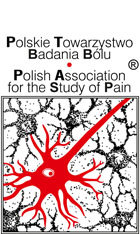EPS 2023 • Neuro-immune Interactions in Nociception, Pain and Itch
The European Pain School (EPS), founded at the University of Siena (Italy) in 2002, is the first and still the premier school intended for students working on basic science and clinical topics related to acute and chronic pain. EPS has an interdisciplinary perspective and a distinct research orientation. Young scientists at the Ph.D. or postdoctoral levels (or equivalent) in all fields of pain science and pain medicine are encouraged to apply.

2023 Edition: Neuro-immune Interactions in Nociception, Pain and Itch
The nociceptive and the immune system, both innate and adaptive, share functional similarities which evolved from the vital necessity to avoid physical threats and to detect damage- and pathogen-associated molecular patterns. These capacities rely on a multiplicity of receptor-equipped excitatory ion channels, including the TRPs, and of G protein-coupled and toll-like receptors. The mutual neuro-immune interaction is based on the release of immunomodulatory neuropeptides, on classical inflammatory mediators, products of oxidative stress, and on signaling via cytokines, chemokines, growth factors, and even miRNA sequences. Located in closest proximity to peripheral nerve endings, cell types such as epithelial cells of the skin and inner surfaces, non-myelinating Schwann cells, and mast cells fulfil both nociceptive and immune functions, sensing noxious stimuli and sending chemical signals to the neurons. In the spinal dorsal horn, glial cells, in particular activated microglia, exert immune functions and take influence on the synaptic transmission of nociceptive input. Also the autonomic nervous system, sympathetic and parasympathetic nerves, take influence on immune cells and exert (anti-)inflammatory reflexes. Neuro-immune interactions play an emerging role in many chronic diseases associated with pain or itch.
Application deadline:
EXTENDED TO
28 February 2023


